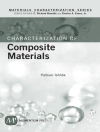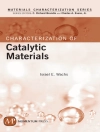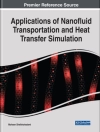This edited volume summarizes research being pursued within the DFG Priority Programme 1748: 'Reliable Simulation Methods in Solid Mechanics. Development of non-standard discretisation methods, mechanical and mathematical analysis’, the aim of which was to develop novel discretisation methods based e.g. on mixed finite element methods, isogeometric approaches as well as discontinuous Galerkin formulations, including a sound mathematical analysis for geometrically as well as physically nonlinear problems. The Priority Programme has established an international framework for mechanical and applied mathematical research to pursue open challenges on an inter-disciplinary level. The compiled results can be understood as state of the art in the research field and show promising ways of further research in the respective areas. The book is intended for doctoral and post-doctoral students in civil engineering, mechanical engineering, applied mathematics and physics, as well as industrial researchers interested in the field.
Spis treści
Hybrid discretization in solid mechanics for non-linear and non-smooth problems.- Novel Finite Elements – Mixed, Hybrid and Virtual Element Formulations at Finite Strains for 3D Applications.- Robust and Efficient Finite Element Discretizations for Higher-Order Gradient Formulations.- Weakly symmetric stress equilibration for hyperelastic material models.- Adaptive least-squares, discontinuous Petrov-Galerkin, and hybrid high-order methods.- Least-Squares Finite Elements for Large Strain Elasto-Plasticity.- Hybrid Mixed Finite Element Formulations based on a Least-Squares Approach.- Adaptive and Pressure-Robust Discretization of Nearly-Incompressible Phase-Field Fracture.- A detailed investigation of the phase-field approach to fracture in linear and finite elasticity.- Adaptive isogeometric phase-field modelling of heterogeneous solids.- Phase Field Modeling of Brittle and Ductile Fracture.- Adaptive quadrature and remeshing Strategies for the Finite Cell Method at large Deformations.- The Finite Cell Method for Simulation of Additive Manufacturing.- A posteriori Error Control and Adaptivity for the Finite Cell Method .- Frontiers in Mortar Methods for Isogeometric Analysis.- Beyond isogeometric and stochastic collocation in nonlinear mechanics.- Finite element methods for rate-independent damage processes.












